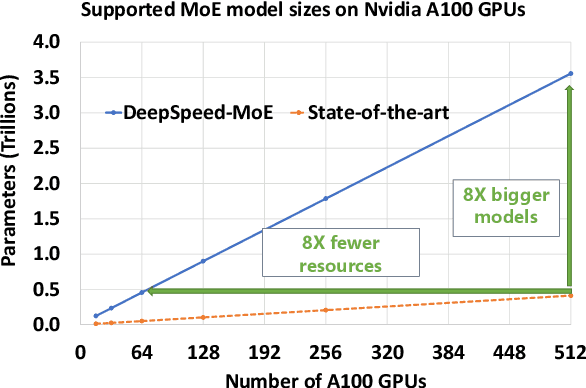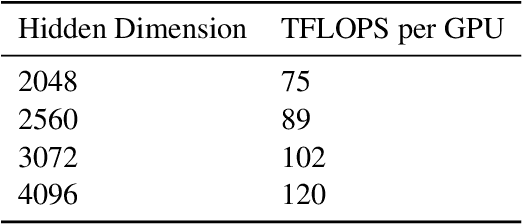Scalable and Efficient MoE Training for Multitask Multilingual Models
Paper and Code
Sep 22, 2021



The Mixture of Experts (MoE) models are an emerging class of sparsely activated deep learning models that have sublinear compute costs with respect to their parameters. In contrast with dense models, the sparse architecture of MoE offers opportunities for drastically growing model size with significant accuracy gain while consuming much lower compute budget. However, supporting large scale MoE training also has its own set of system and modeling challenges. To overcome the challenges and embrace the opportunities of MoE, we first develop a system capable of scaling MoE models efficiently to trillions of parameters. It combines multi-dimensional parallelism and heterogeneous memory technologies harmoniously with MoE to empower 8x larger models on the same hardware compared with existing work. Besides boosting system efficiency, we also present new training methods to improve MoE sample efficiency and leverage expert pruning strategy to improve inference time efficiency. By combining the efficient system and training methods, we are able to significantly scale up large multitask multilingual models for language generation which results in a great improvement in model accuracy. A model trained with 10 billion parameters on 50 languages can achieve state-of-the-art performance in Machine Translation (MT) and multilingual natural language generation tasks. The system support of efficient MoE training has been implemented and open-sourced with the DeepSpeed library.
 Add to Chrome
Add to Chrome Add to Firefox
Add to Firefox Add to Edge
Add to Edge